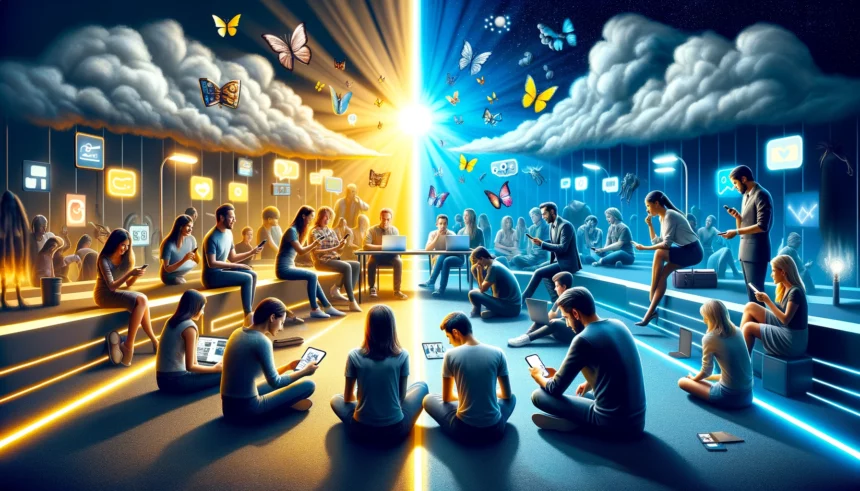Social media has become a daily companion for many of us. In Singapore, a whopping 84% of residents use platforms like Facebook, YouTube, Instagram, WhatsApp, Twitter (now “X”), and TikTok every day. These platforms offer a quick way to share and receive information through texts and visuals. While they help us connect with friends, family, and even strangers worldwide, they also have a significant influence on our mental health.
The Dual Nature of Social Media
Social media can be a double-edged sword. On one hand, it provides opportunities for connection and self-expression. On the other, it brings several challenges that affect our mental well-being. Here’s a closer look at both sides:
Positive Impacts
- Connection with Others: We can stay in touch with friends and family, no matter the distance.
- Access to Information: Social media keeps us updated on news, trends, and educational content.
- Self-Expression: Platforms allow us to share our thoughts, creativity, and experiences.
Negative Impacts
- Comparison Culture: Constantly seeing curated images and highlight reels can make us feel inadequate. This can lead to low self-esteem and even depression.
- Cyberbullying: The anonymity of social media can lead to harassment and negative comments, impacting mental health.
- Fear of Missing Out (FOMO): Seeing others’ seemingly perfect lives can make us anxious and stressed about missing out.
- Unrealistic Beauty Standards: Filtered and edited images can distort our perception of beauty, leading to body dissatisfaction and poor self-image.
- Unrealistic Lifestyles: Posts showing perfect lives can create envy and negatively impact self-esteem.
Strategies for Healthy Social Media Use
It’s important to manage our social media use to protect our mental health. Here are some strategies:
Set Boundaries
- Limit Time: Set specific times for using social media and stick to them.
- Social Media-Free Zones: Designate areas or times where social media is off-limits, like during meals or before bed.
Practice Digital Detoxes
- Take Breaks: Periodically disconnect from social media. Use this time for offline activities, hobbies, and face-to-face interactions.
Curate Your Feed
- Follow Positivity: Choose accounts that inspire, uplift, and align with your values. Unfollow those that promote negativity or unrealistic standards.
Be Mindful of Your Mental Health
- Self-Awareness: Notice how social media affects your mood. If it consistently makes you feel bad, take a break or seek help.
Cultivate Real-Life Connections
- Prioritize Offline Relationships: Spend quality time with friends and family in person. Join community groups or clubs to meet people with similar interests.
How Therapy Can Help
Therapy offers valuable tools to manage the impact of social media on mental health. Here are some approaches:
Cognitive-Behavioral Therapy (CBT)
CBT helps identify and change negative thought patterns. It can address issues like self-comparison, FOMO, and low self-esteem by promoting healthier thinking and coping strategies.
Mindfulness-Based Interventions
Practices like mindfulness meditation and acceptance and commitment therapy (ACT) increase self-awareness and reduce reactivity to social media triggers, promoting a balanced approach to its use.
Media Literacy Education
Learning to critically analyze social media content can help us make informed choices about our online behavior and reduce the influence of harmful content.
Family Therapy and Parental Guidance
For young people, involving families can be crucial. Educating parents about social media risks and benefits, setting boundaries, and fostering open communication can protect young users’ mental health.
Social media is here to stay, and understanding its impact on mental health is essential. By setting boundaries, practicing mindfulness, and seeking professional help when needed, we can enjoy the benefits of social media while minimizing its negative effects. Remember, it’s about finding a balance that works for you and promotes your well-being.
















